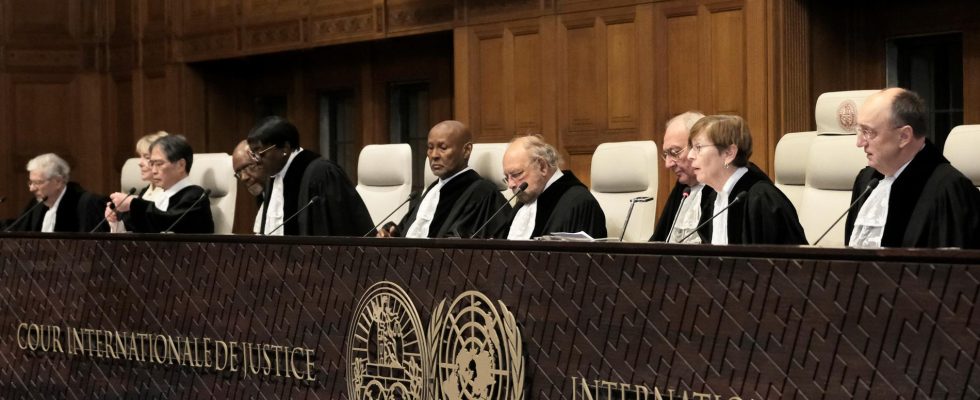unsaveSave
share-arrowShare
expand-left
fullscreen ICJ judges at the opening of the trial in which South Africa accuses Israel of “genocide-like actions”, something Israel strongly denies. Photo: Patrick Post/AP/TT
Is Israel’s warfare against Hamas “genocidal”? The infected issue is now to be decided by the International Court of Justice in The Hague.
This is how the court works.
Located in the imposing Peace Palace in The Hague in the Netherlands, the International Court of Justice (ICJ) handles disputes between different countries.
A court case in the ICJ is not a simple or quick process and it can take several years before the court makes a final decision. Therefore, in the current legal case, South Africa has also requested that the ICJ order Israel to immediately stop its military operations in Gaza, a decision that could be decided in a few days or weeks and apply while the rest of the legal process continues.
Cannot be appealed
For a case to be brought before the International Court of Justice in The Hague, disputing states must jointly bring a case there, or a state can request that the court take up a case involving another country. That is the case here, when South Africa raised the issue of Israel’s actions in Gaza.
In the ICJ, the countries involved in a case are represented by representatives who are usually appointed by the country’s Ministry of Foreign Affairs or its diplomatic representation in The Hague.
The decisions made by ICJ judges are final and cannot be appealed. By signing the UN Charter, member states have committed to comply with the court’s rulings, and it is rare for the judgments to be disobeyed. If one of the parties in the process believes that the other party is not complying with a ruling from the ICJ, the issue can be raised in the UN Security Council, which can make decisions on recommendations or measures to ensure that the ruling is followed.
International treaties govern
The judges of the Court have to take into account several criteria for their decisions, including international treaties and conventions, general principles of law and judicial decisions. The court can also decide cases – if the parties agree to this – without limiting itself to existing rules of international law.
The 15 ordinary judges are elected by the UN General Assembly and the Security Council. For the court to reach a verdict, at least nine judges must agree.
A case can be terminated at any time by settlement between the parties, or by a state that submitted the case to the court announcing that it does not wish to continue the process.
All states that are party to a case in the ICJ but do not have a judge on the court have the right to appoint a temporary judge, so even in this case where a judge from Israel and one from South Africa participate.
The ICJ was established when the UN Charter entered into force in 1945.
